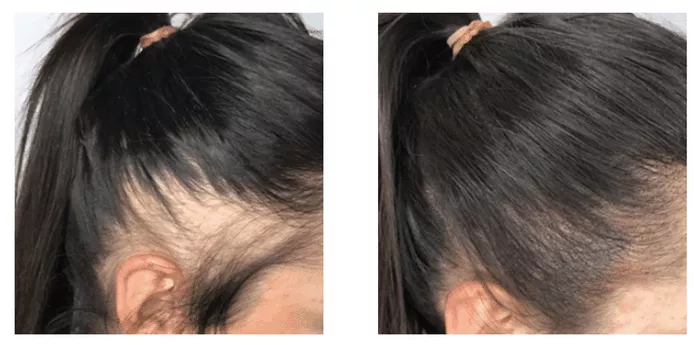Hair loss, or alopecia, is a common concern among individuals of all ages and genders. While it’s often associated with men, women also experience hair thinning and loss, especially as they age. For older women, understanding the causes behind hair loss is crucial for managing this condition effectively. In this article, we delve into the various factors contributing to hair loss in older women, with a focus on Female Pattern Hair Loss (Androgenetic Alopecia), age-related changes, menopause, and other relevant factors.
Female Pattern Hair Loss (Androgenetic Alopecia)
Female Pattern Hair Loss (FPHL), also known as Androgenetic Alopecia, stands out as the most common cause of hair loss in women. Unlike in men, where balding often follows a distinct pattern, FPHL in women typically results in diffuse thinning across the scalp. This condition is influenced by genetic predisposition, with inherited genes playing a significant role.
The mechanism behind FPHL involves the shrinking of hair follicles over time, leading to shorter and finer hair growth. Eventually, affected follicles may cease to produce new hair altogether. While the exact genetic factors involved in FPHL are complex and multifaceted, research suggests that variations in genes related to hair follicle sensitivity to androgens (male hormones) contribute to its development.
Age and Prevalence
Hair loss becomes increasingly prevalent with age, affecting a substantial proportion of older women. While it’s natural for hair density and thickness to diminish as individuals age, significant hair loss can still be distressing. Statistics reveal that over 50 percent of women over the age of 80 experience some degree of hair loss, underscoring the significance of age as a contributing factor.
As women age, various physiological changes occur within the body, including alterations in hormone levels and decreased circulation to the scalp. These changes can impact the hair growth cycle and follicular health, predisposing older women to conditions like FPHL and other forms of alopecia.
Menopause
Menopause marks a significant hormonal transition in a woman’s life, typically occurring in her late 40s to early 50s. During this phase, the body undergoes a gradual decline in estrogen levels while androgen levels may remain relatively stable or even increase. This hormonal imbalance can have profound effects on various bodily functions, including hair growth.
Many older women notice changes in their hair quality and quantity as they approach and go through menopause. The decrease in estrogen levels, coupled with the relative dominance of androgens, can disrupt the delicate balance necessary for maintaining healthy hair follicles. Consequently, menopausal women may experience thinning hair, hair loss, or changes in hair texture.
Other Factors
In addition to genetic predisposition, age-related changes, and hormonal shifts during menopause, several other factors can contribute to hair loss in older women:
1. Stress: Chronic stress can trigger a condition known as Telogen Effluvium, where a significant number of hair follicles enter the resting phase prematurely, leading to increased shedding.
2. Illness: Certain medical conditions, such as thyroid disorders, autoimmune diseases, and nutritional deficiencies, can manifest as hair loss. Treating the underlying illness is essential for addressing associated hair loss.
3. Medications: Some medications, including certain blood thinners, antidepressants, and chemotherapy drugs, list hair loss as a potential side effect. If hair loss occurs as a result of medication, consulting a healthcare provider for alternative treatment options is advisable.
4. Styling Practices: Excessive heat styling, chemical treatments, tight hairstyles (such as braids or ponytails), and improper hair care routines can damage hair follicles and contribute to hair loss over time.
Conclusion
Hair loss in older women can have various underlying causes, ranging from genetic predisposition and age-related changes to hormonal fluctuations during menopause. While some factors, such as genetic predisposition, may be beyond one’s control, adopting healthy lifestyle habits and seeking appropriate medical interventions can help manage and even reverse hair loss to some extent. By understanding the multifaceted nature of hair loss in older women, individuals can make informed decisions regarding treatment options and lifestyle modifications to promote hair health and overall well-being.


